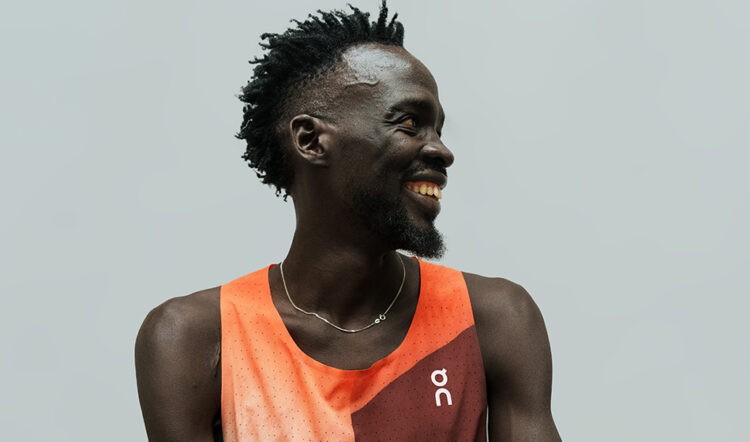From childhood trauma to a European title and a spot at the Olympics, Lobalu opens up about his remarkable journey and the importance of inspiring others
The medal moment was even sweeter than Dominic Lobalu could have imagined.
“When the guy put the gold medal around my neck, it was like going from sleeping on the dust to entering the bathroom, having a shower and all of it coming off,” says the man who was crowned European 10,000m champion earlier this summer.
There was much for him to shed. It’s not so long ago that even the simplest of comforts must have felt out of reach for the 26-year-old. He was just nine years old when he lost both of his parents in the second Sudanese Civil War and fled, alongside his four sisters, from their home in Chukudum to neighbouring Kenya.
His early teenage years were spent in Kakuma – where a United Nations High Commissioner for Refugees (UNHCR) Camp became his home – but his life began to change one day when he was 15, running barefoot in a 10km race, and he caught the eye of double world 10,000m medallist and major marathon champion Tegla Loroupe.
It was a fateful moment. Loroupe invited Lobalu to her Peace Foundation and he subsequently represented the Athlete Refugee Team, an initiative set up by World Athletics, UNHCR and the IOC, to allow refugee athletes to compete internationally despite not having a country to run for. His international debut came a year later at the 2017 World Relays, before he then also ran in the 1500m at the World Championships in London.

Tegla Loroupe (Getty)
The next sliding doors moment arrived in 2019, after winning a 10km road race in Geneva. Rather than going back to Kenya, Lobalu decided to seek asylum in Switzerland and was subsequently introduced to a secondary school teacher and part-time athletics coach named Markus Hagmann, who took the then 20-year-old under his wing.
“Without him I wouldn’t have achieved what I’ve had in life,” Lobalu says. “I remember when I met him years ago it was only him I knew in Switzerland. He did everything to help me. When I came to Switzerland I didn’t speak any kind of language anyone understood so he took care of everything.
“There were papers that I had to sign that could take me half a day to understand but he sorted all of that out. It allowed me to focus on training. My life would be so much harder without him.”
Lobalu’s story is the subject of a mini-documentary made by On, the Swiss brand he works with, called…
CLICK HERE to Read the Full Original Article at AW…

